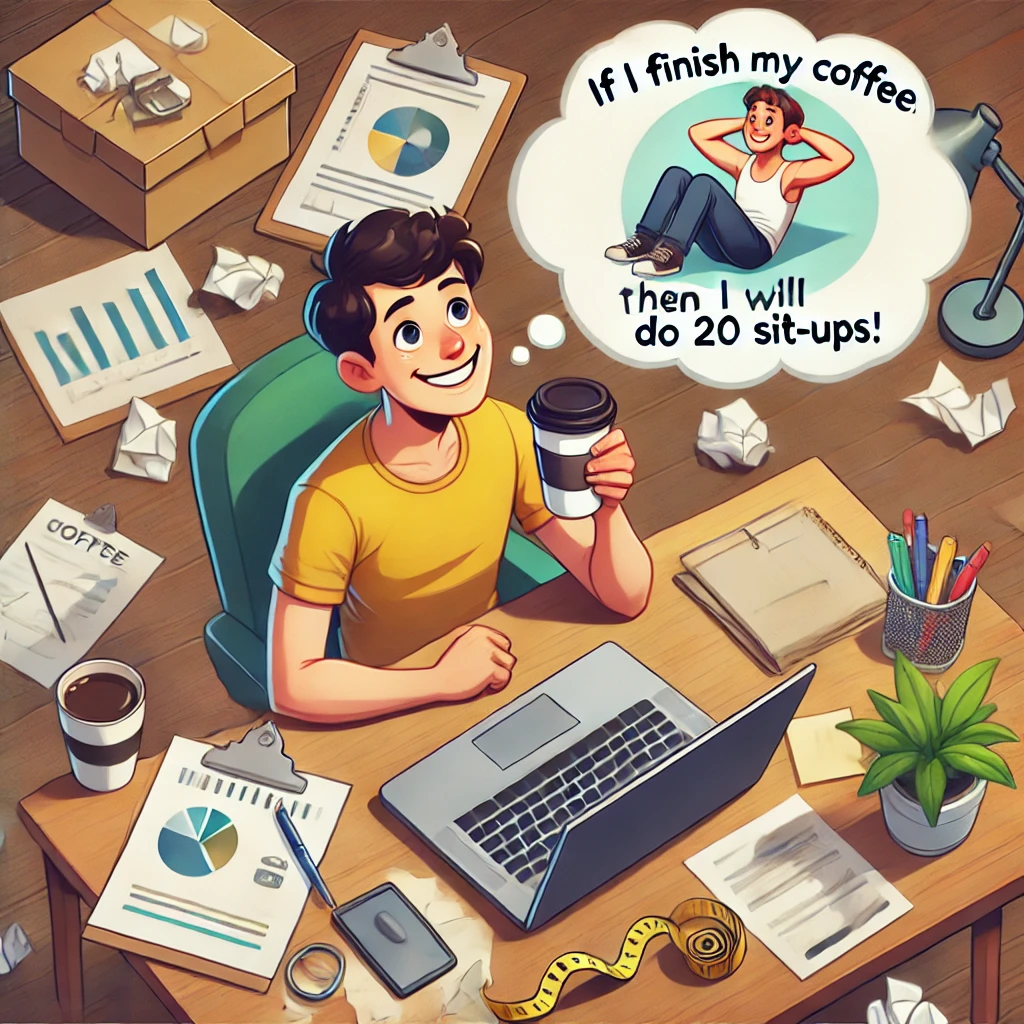It’s a familiar scenario for many of us. Sticking to resolutions, whether they involve fitness, healthy eating, or personal growth, can feel like an uphill battle when fatigue, distractions, or unexpected tasks get in the way. But what if there were a simple method that could make sticking to your goals easier? Enter the "if-then" strategy—an evidence-based approach proven to boost success rates.

What is the "If-Then" Strategy?
The "if-then" strategy is a form of implementation intention—a plan that links a specific situation to a desired action. It is structured as: "If X happens, then I will do Y." This strategy turns goals into automatic behaviors by associating them with specific triggers.
For example, instead of saying, "I want to exercise more," you can create a plan like, "If I finish work at 5 p.m., then I will go for a 30-minute run." This simple planning technique creates a mental connection between the cue (finishing work) and the action (going for a run), increasing the likelihood that the action will be completed.
The Science Behind It
A classic study conducted by Peter Gollwitzer and Paschal Sheeran in the early 2000s found that people who used if-then plans were significantly more successful at achieving their goals compared to those who relied solely on willpower. One experiment showed that individuals who formed an if-then plan to exercise, such as "If it’s 6 a.m., then I will go to the gym," were much more likely to stick to their routine than those who only set a vague goal to exercise more frequently.
By associating the desired behavior with a clear situational cue, people essentially bypass their reliance on willpower alone. When the cue is encountered, the brain triggers the corresponding action without needing to deliberate or wrestle with conflicting desires.
How It Helps: The Story of a Weight Loss Study
A study conducted by Verplanken and Faes in 1999 focused on weight loss participants. Participants in the study were given the goal of losing 5% of their body weight over a period of 12 weeks. Half of the participants were asked to create general goals, such as “I will eat less,” while the other half used if-then planning, formulating statements like, “If I finish dinner, then I will skip dessert.”
The results were astounding. Those who used the if-then strategy were much more successful in reaching their target weight loss compared to those who relied on general goals. They lost, on average, 4.7% of their body weight, whereas the other group only lost about 2.1%. The study showed that the success of the if-then group was rooted in their ability to break their goals into manageable, actionable steps, each tied to a specific trigger.
Examples of "If-Then" Plans in Action
The beauty of the if-then strategy is its versatility—it can be applied to almost any goal. Below are examples of how it can be used across different areas of life:
-
Exercise and Fitness:
- If it’s 7 a.m., then I will do 15 minutes of yoga.
- If I finish my coffee, then I will do 20 push-ups.
- If I get home from work, then I will go for a 20-minute walk.
-
Healthy Eating:
- If I start preparing lunch, then I will add a serving of vegetables to my meal.
- If I’m at a restaurant, then I will order water instead of soda.
- If I feel a craving for sweets, then I will eat a piece of fruit instead.
-
Productivity and Work:
- If I arrive at my desk in the morning, then I will spend 10 minutes organizing my tasks.
- If I check my email, then I will respond to urgent messages first.
- If I finish a project, then I will take a 5-minute break to recharge.
-
Personal Growth and Habits:
- If it’s 9 p.m., then I will read for 15 minutes before bed.
- If I feel stressed during the day, then I will take 5 deep breaths to calm myself.
- If I receive negative feedback, then I will reflect on it for 10 minutes before reacting.
These examples highlight how the if-then strategy can take vague goals and transform them into specific, actionable steps. The structured nature of these plans reduces the cognitive load required to make decisions in the moment, making it easier to stay consistent.
Why It Works: Automaticity and Reduced Decision Fatigue
One of the reasons the if-then strategy is so effective is because it reduces decision fatigue. Throughout the day, we make numerous decisions—what to eat, how to respond to emails, whether to take the stairs or the elevator. All of these small decisions deplete our mental energy, making it harder to stay committed to larger, more challenging goals.
By using if-then plans, you essentially pre-make the decision before the moment arises. For instance, instead of debating with yourself after work whether you should exercise or relax, the decision is already made: "If I finish work, then I will go for a run." This automaticity helps you follow through with your intentions without having to wrestle with motivation or conflicting desires.
Real-Life Success Stories
In another study by Gollwitzer and Sheeran, participants who wanted to donate blood were more likely to do so when they formed an if-then plan, such as "If I see the blood donation truck, then I will sign up." These participants showed a 70% success rate, compared to only 30% of participants who did not form a plan. The study underscores how if-then plans can nudge people toward actions they might otherwise avoid, even if those actions align with their goals.
Another inspiring story comes from an office worker named Susan, who struggled to incorporate exercise into her daily routine. Despite her good intentions, she would often get caught up in work and feel too drained to work out. After learning about the if-then strategy, Susan implemented the plan: “If it’s lunchtime, then I will go for a 15-minute walk around the block.” This simple plan tied the act of walking to a regular daily event (lunchtime), and within weeks, she had established a regular exercise habit.
Conclusion: Transforming Your Goals with "If-Then" Planning
The if-then strategy offers a straightforward, powerful way to transform vague intentions into specific actions. Whether you want to improve your fitness, eat healthier, be more productive at work, or develop better habits, creating an if-then plan can increase your chances of success.
The key is specificity. By connecting a desired action to a specific cue, you automate the process of achieving your goals, making it easier to follow through even when life gets busy or energy levels are low. So the next time you’re faced with a daunting resolution, remember: "If X happens, then I will do Y." Simple, effective, and backed by science.
